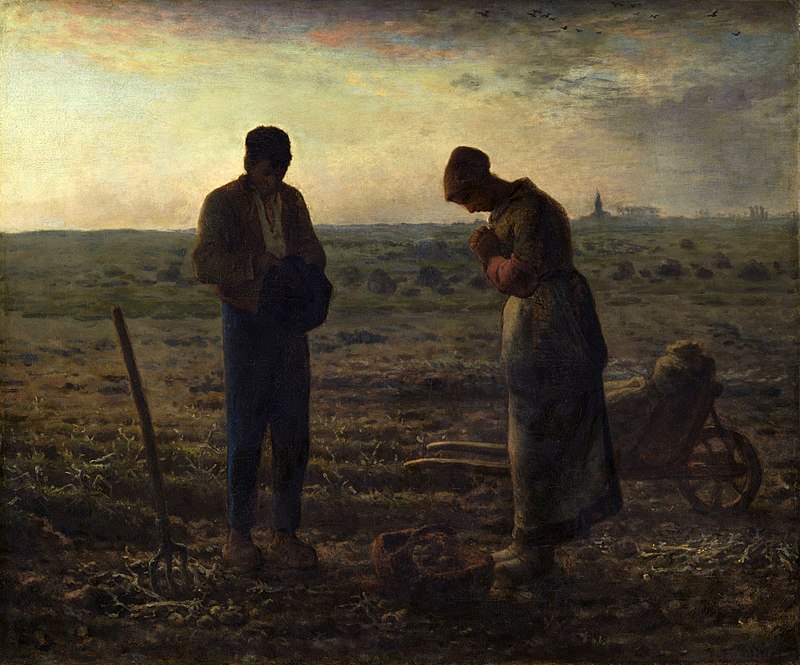Richard Rohr's Daily Meditation
Action and Contemplation: Part 1
From The Center For Action And Contemplation
Our Foundational Commitment
Sunday, January 5, 2020
The most important word in our Center’s name is not Action nor is it Contemplation; it’s the word and. We need both compassionate action and contemplative practice for the spiritual journey. Without action, our spirituality becomes lifeless and bears no authentic fruit. Without contemplation, all our doing comes from ego, even if it looks selfless, and it can cause more harm than good. External behavior must be connected to and supported by spiritual guidance. It doesn’t matter which comes first; action may lead you to contemplation, and contemplation may lead you to action. But finally, they need and feed each other as components of a healthy dynamic relationship with Reality. In fact, this relationship between Action and Contemplation is so important that it will be the underlying theme of my Daily Meditations for 2020, as I look at it from many angles.
I used to think that most of us begin with contemplation or a unitive encounter with God and are then led through that experience to awareness of the suffering of the world and to solidarity with that suffering in some form of action. I do think that’s true for many people, but as I read the biblical prophets and observe Jesus’ life, I think it also happens in reverse: first action, then needed contemplation.
No life is immune from suffering. When we are in solidarity with the suffering caused by pain, injustice, war, oppression, colonization—the list goes on and on—we face immense pressure to despair, to become angry or dismissive. When reality is split dualistically between absolute good and bad, total right and wrong, we are torn apart. Yet when we are broken, we are most open to contemplative consciousness or nondual thinking. We are desperate to resolve our own terror, anger, and disillusionment, so we finally allow ourselves to be led into the silence that holds everything together in wholeness.
The contemplative, nondual mind is not saying, “Everything is beautiful” when it’s not. However, we do come to “Everything is still beautiful” by contemplatively facing the conflicts between how reality is and how we wish it could be. In other words, we have to begin with the dilemma of a seemingly totally dualistic problem. We’ve first got to name good and evil with some clarity and differentiate between right and wrong. We can’t be naive about evil. But if we remain focused on this duality, we’ll become unlovable, judgmental, dismissive people. I’ve witnessed this pattern in myself. We must eventually find a bigger field, a wider frame, which many call nondual thinking or “contemplation.”
Jesus does not hesitate to dualistically name good and evil and to show that evil is a serious matter. However, he does not stop there. He often speaks in dualistic images, especially in regard to issues of wealth and power: “You cannot serve God and mammon” (Matthew 6:24). He draws a stark line between the sheep and the goats, the compassionate and the indifferent (Matthew 25:31-46). Yet Jesus goes on to overcome these dualisms by the contemplative, nondual mind. We can and should be honest about evil, even at the risk of making some people uncomfortable; but we must not become hateful nor do we need to punish the “goats” in our life. We keep going deeper until we can also love them and seek their healing and transformation.
Gateway to Action & Contemplation:
What word or phrase resonates with or challenges me? What sensations do I notice in my body? What is mine to do?
What word or phrase resonates with or challenges me? What sensations do I notice in my body? What is mine to do?
Prayer for Our Community:
O Great Love, thank you for living and loving in us and through us. May all that we do flow from our deep connection with you and all beings. Help us become a community that vulnerably shares each other’s burdens and the weight of glory. Listen to our hearts’ longings for the healing of our world. [Please add your own intentions.] . . . Knowing you are hearing us better than we are speaking, we offer these prayers in all the holy names of God, amen.
O Great Love, thank you for living and loving in us and through us. May all that we do flow from our deep connection with you and all beings. Help us become a community that vulnerably shares each other’s burdens and the weight of glory. Listen to our hearts’ longings for the healing of our world. [Please add your own intentions.] . . . Knowing you are hearing us better than we are speaking, we offer these prayers in all the holy names of God, amen.
Adapted from an exclusive video teaching by Richard Rohr within the Living School program.
Image credit: The Angelus (detail), Jean-François Millet, 1857–1859, Musee d'Orsay, Paris, France.
Jen Hatmaker Interviews Richard Rohr

No comments:
Post a Comment